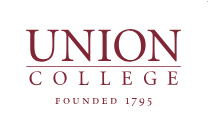What Is Open Access?
 Open Access (OA), a concept coined by the Budapest Open Access Initiative in 2002, is scholarship that is available online, for free, and without restrictions, such as copyright or embargoes. OA is distinguished from toll access, in which scholarship is accessible only through payment.
Open Access (OA), a concept coined by the Budapest Open Access Initiative in 2002, is scholarship that is available online, for free, and without restrictions, such as copyright or embargoes. OA is distinguished from toll access, in which scholarship is accessible only through payment.
OA is also an advocacy movement. The OA movement responds to two trends: the inexpensiveness and openness of digital communication technology and the increasing price of scholarship set by for-profit academic publishers. OA advocates leverage the former to solve the problem of the latter to make scholarship available online and free of (most) cost and rights barriers, so that it can be accessed more easily and widely.
Scholarship can be made OA in a number of ways, four of which are outlined below:
- Green OA, in which scholarship is made freely accessible via a digital repository, often either as a self-archived pre-print (draft before peer review and formal publication) or an embargoed post-print
- Gold OA, in which the publisher publishes the scholarship as OA and the publishing fees are covered by an Article-Processing Charge (APC), i.e. paid not by the reader but instead by the author, author's institution, author's research funder, etc.
- Platinum / Diamond OA, in which the publisher publishes the scholarship as OA and the publishing fees are covered not by an APC but instead by grants, learned societies, academic institutions, etc.
- Hybrid OA, in which the publisher publishes some scholarship as OA and other scholarship as toll access
The video below, entitled "What is Open Access?" and created by Piled Higher and Deeper (aka PHD Comics), offers an informative and informal introduction to Open Access.
The copyright of "What Is Open Access? is held by Piled Higher and Deeper Publishing, LLC.
The Three Defining Statements of OA
Below are the three foundational definitions / manifestos of Open Access. As they were produced in Budapest (2002), Bethesda (2003), and Berlin (2003), they are often collectivized as the BBB definition of OA. They essentially make the same recommendation: using the publishing affordances of the Internet to establish Green OA and Gold OA as the norm for scholarly essay publication.
